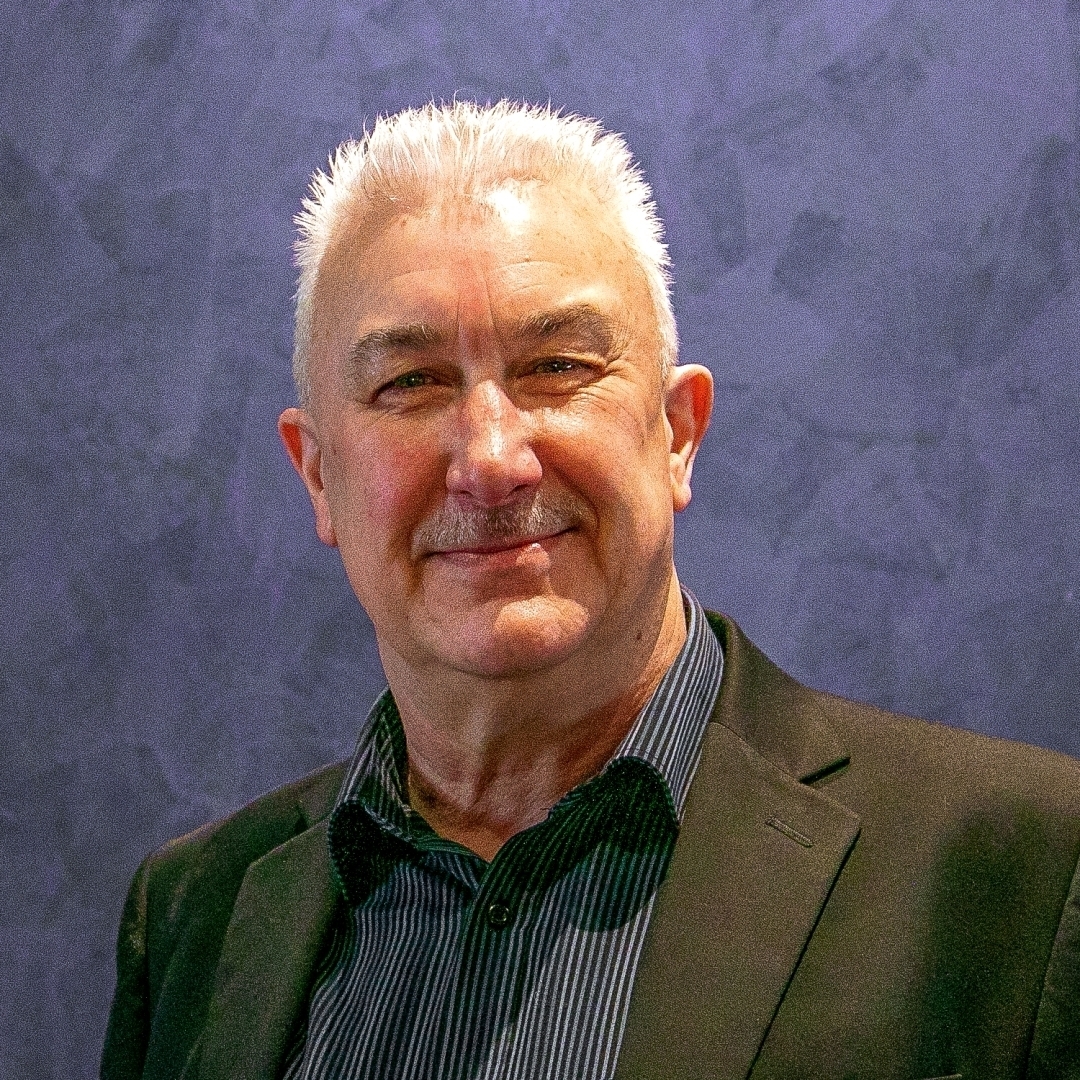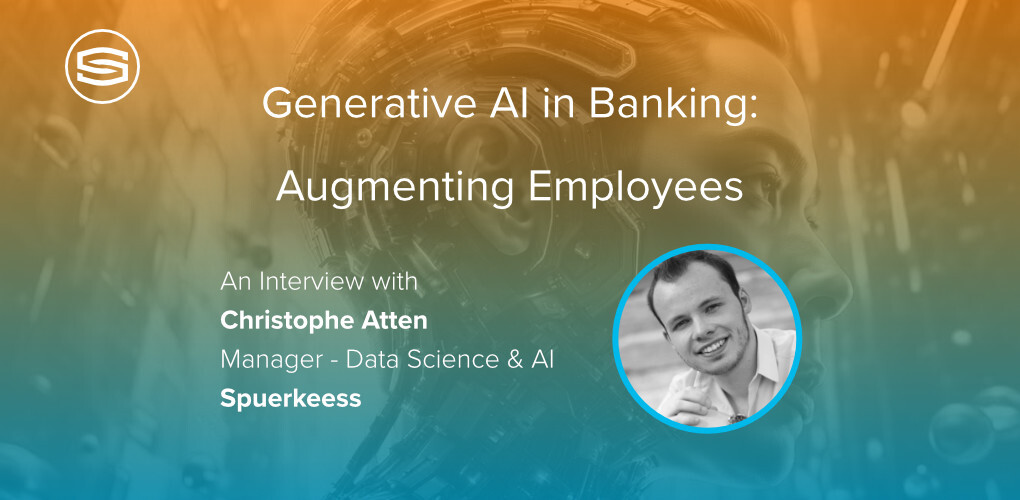
Insights & Opinions
Generative AI in Benelux Banking: Spuerkeess - Augmenting Employees
Mon, 29 Apr 2024


Christophe Atten is deeply passionate about bridging the gap between technology and real-world applications, driving not just efficiencies but also innovation. He believes that the power of data science and AI extends beyond the technology itself and is about the impact and value they bring to our lives and society. He has published over 150 articles, presenting complex AI concepts in an accessible and engaging manner.
He is also the Manager of the Data Science & AI Team at Spuerkeess in Luxembourg, making him a great candidate to interview in our ongoing series on Generative AI Use Cases and Opportunities in Banking.
While Spuerkeess is still in the exploration phase of generative AI, it was clear from the start of the interview that a lack of GPUs in the bank was never going to stop Christophe from experimenting and proving the potential of it. He explained how he and his team started using small models last year, locally deployed, running on CPUs (and in some cases these could even be run on a single PC), doing early proof-of-concepts for generic use cases.
All the use cases so far have been focussed purely on internal efficiencies, making life easier for the bank employees, helping and supporting them in their work.
Internal knowledge base
The very first experiment involved deploying a chatbot interface on top of a centralised internal repository of all documentation for example regulation, policies, procedures etc. Using this, employees can quickly find answers to their queries and relevant supporting documents. This streamlines information retrieval and enhances internal knowledge sharing, as it’s far easier to ask a chatbot than it is to spend an hour searching through various folders and documents looking for a specific text.
The natural evolution to this has been to experiment with semi-automating responses to customer queries received by email. The bank receives a large number of customer queries in this manner, and it is time consuming, repetitive work to respond to all of them. By leveraging generative AI, the bank is exploring ways to swiftly generate standardised (templated) responses to customer emails, using the internal knowledge base they have created.
Of course, due to current regulation and limitations of AI models, they could not allow the AI to automatically communicate directly with the customer. The system they are working on would ensure that responses, although generated by AI, are reviewed by employees before being sent out, ensuring accuracy while significantly reducing response times and reducing the amount of repetitive work the employees have to undertake.
Translation services
Luxembourg is a multilingual environment, with French, German, English and Luxembourgish speaking citizens. Spuerkeess does not currently have any translation tools deployed internally and due to security and client confidentiality concerns, their systems are totally isolated, meaning that the staff cannot make use of public translation tools available on the web. This can often slow people down while they find someone that can translate a query or a response.
As a result, Christophe’s team is analysing the translation capabilities of a few open-source models, to see what the hardware requirements would be to replicate these on the bank’s internal infrastructure.
The business case for infrastructure investment would be around streamlining customer service, enhancing internal communication, and aiding employees in navigating the myriad languages encountered in their daily operations.
Coding and Development Support
For the bank's IT department, generative AI is being used to assist with coding tasks. Using models trained predominantly on coding datasets, the bank aims to speed up the development process by providing real-time coding assistance to its developers.
Here Christophe pointed out that a tool of this nature is far more likely to benefit a senior, more experienced coder than a junior coder, which might be contrary to what many people may think. The reason for this is that the AI assistants aren’t quite there yet when it comes to generating perfect code. In his experience, AI can help a senior coder quickly by getting them heading in the right direction. He said it can be 60 – 80% right (quite a large variation!!) but not perfect. The person evaluating the AI output would need to understand code and know what edits / changes to make.
Even given this limitation, in his experience he believes it considerably enhances productivity in the hands of a qualified person.
Publicly available information
In another interesting experiment, Christophe’s team used Python and a plugin to scrape their own public website, and then used an open source generative AI model to see if it might be possible to enable customers to ask questions about what products are available in a free-form conversational manner, via a chat bot.
While many banks already have chatbots deployed, these are mainly “rule based” and rely on very standard questions, or they provide structured prompts, similar to an interactive telephone system (eg press 1 for savings accounts, 2 for current accounts, 3 for mortgages etc). The point of this experiment was for the generative AI model to interpret unstructured data and queries and answer them in a natural, conversational manner.
This might sound like a really simple application of AI but actually from a customer perspective could end up being extremely effective. I know that as a bank customer, I am not alone in getting lost in complex menus and sub-menus on a bank’s site when I’m trying to find simple product information.
Providing the chat-bot doesn’t “give advice”, there would be absolutely no regulatory issue with doing this using existing open-source models either.
On speaking about chatbots, Christophe shared with me that in the future, he would like to think that the bank could potentially do away with forms for customers to fill in altogether. He envisages the possibility one day of a conversational interface, where an AI could ask a customer relevant questions and parse the answers into the appropriate fields, exactly in the same way a human could do right now. This again is something I can get excited about as a customer and now that he has planted this possibility in my head, I can’t wait to see if/when a bank will actually do this! The customer experience impact could be significant!
Where to next?
While none of the above experiments have made it into production yet, the team has learned a lot about what they would need to scale from experimental to production scale. As Christophe said “we know where we don’t need to pay for a Bugatti when a Volkswagen will do the job”.
The early feedback on the experiments so far from the business has been positive, and interest in AI has been steadily growing across departments in the bank. I’m sure that this is in no small part due to the positive attituded that Christophe has with regards to AI, and the way he addresses questions around AI potentially replacing humans in the future.
“AI is just a tool - it’s like a human which gets a robotic arm and can do better stuff. It’s an augmentation of the human, and it will not replace them in the near future.”
I personally think that this kind of positive reinforcement is critical to allay the fears of staff and combat the hype in the headlines, which is often totally misleading, like the story from Klarna that its AI chatbot is doing the work of 700 full time staff. The story never said they fired 700 staff because of their AI, but that is what many people think and repeat as a horror story.
However, Christophe believes there is another, much more powerful force behind the increased interest and positive attitude that is behind the 50+ use cases they have identified across the business – simplicity.
“Everyone can use AI. It's not that they created GPT3.5 or GPT4, but they made it so easy and simple that my grandmother can use it. That’s the real innovation in my opinion.”
If that’s not a compelling enough reason for you to go and try a Generative AI today, I don’t know what is 🤔
(Download our white paper "Generative AI in Benelux Banking: Opportunities, Challenges and Future Outlook" for a consolidated collection of insights shared by Benelux bankers across 1:1 interviews, keynotes, panels and executive round tables we hosted)


